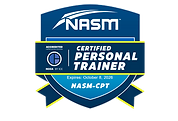

.png)

Areas of Expertise
Positive Psychology
There are five key pillars of well-being (PERMA) that were created by psychologist Martin Seligman, the "father" of Positive Psychology.
-
Positive Emotion
-
Engagement
-
Relationships
-
Meaning
-
Accomplishment
Through these pillars, we can obtain optimism, activities that nurture ourselves, mindful connections, purpose, and fulfillment.
Research shows us that happier people live longer, are more successful in their endeavors, have better physical health, are creative/flexible, and are socially connected.
Positive Psychology is a strength-based field. The focus is learning how to build upon what you already have, incorporating healthy habits, and reframing your perspective to live a life that you can be fulfilled in.
Resiliency
The American Psychological Association defines resilience as this:
"Resilience is not a trait that people either have or do not have. It involves behaviors, thoughts, and actions that can be learned and developed in anyone."
Psychologists Alex J. Zautra & John Stuart Hall of Resilience Solutions Group discovered these core principles of resilience:
-
Optimism
-
Flexibility
-
Determination
-
Sustainability
-
Diversity
-
Balance
-
Connectedness
A misconception of resilience we may have is that it is a trait. That we just merely "tough it out" when faced with adversity.
Resilience is a process and practice. It involves recovery and sustainability. It is about how you adapt, recharge, and sustain. Not how you endure.
With our hustle and bustle society, we are praised for overworking and not praised for taking care of ourselves: mentally, emotionally, physically, and socially.
When we don't have sufficient recovery time, our performance suffers and our cognitive and emotional functions are impacted negatively. This can create a negative cycle that is based on reactivity, and not on proactiveness.
My Approach
So how do I apply both Positive Psychology and Resilience in daily life and coaching?
The World Health Organization (WHO) defines self-care as: "It is what individuals do for themselves to establish and maintain health to prevent and deal with illness".
Self-care is not self-indulgent. This concept may be hard for some of us to accept (don't worry I did as well). The ability to recharge and recover takes a level of self-awareness. Through this, you can be present with yourself and acknowledge how you feel and what your needs are.
I am sure we all have heard this saying "You can't pour from an empty cup". So what can we do about it?
Reframing our perspective is much more powerful and effective than we may think. I am here to help you formulate this new perspective on your life and guide you on how you can put it into action.
Learning how to live an intentional life, have mindful connections, and savor what life has to offer is my approach. Implementing habits that are proactive, not reactive, will help you best respond when life throws its curveballs.
If you are struggling with overwhelm, stress, and maintaining the life that you want and can sustain, I am here to help you make that first step in obtaining a healthy, positive life!

_edited.png)